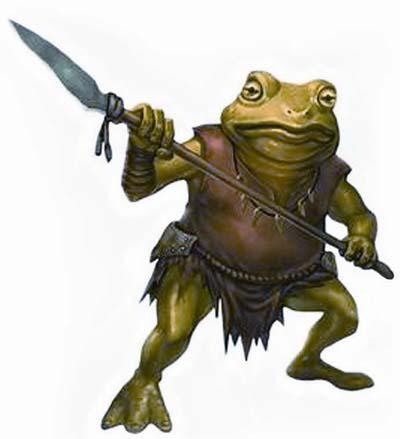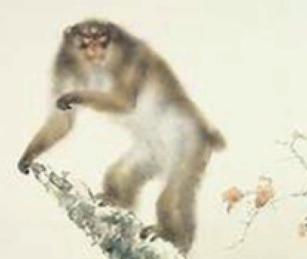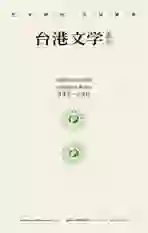Mickey Mouse
2018-10-18Author_KarlTaroGreenfeld
Author_Karl Taro Greenfeld(U.S.A)

After our trium phant w inter, the pink- w hite cherry blossom s already budding on m ossy branches, the first cicadas buzzing in the late afternoons, our Em pires prospects boundless, our fleets trium phant, our soldiers valiant, our Divine Em peror infallible, I received in m y third- floor office on our deserted cam pus a visitor, m y form er classm ate Kunugi.
He w as dressed in a three- piece tw eed suit, w orsted w ool from London, w ith a paisley pocket square peeking over the selvage and a gold w atch chain dangling from another cavity into the fabric. He had alw ays been a dandy, and now , in his new prosperity, in his high office, w ith his surfeit of im perial spoils, he could afford such finery. He shook an English cigarette from a box and lit it w ith an Am erican lighter.
I had been seated at m y drafting table, w orking on som e pen and ink sketches, and as the ink w as still w et I did not cover the illustration before answ ering the door. Kunugi im m ediately crossed the room and inspected the draw ing, a m other and son, each tightly bundled in a kim ono, w alking on a country road, first snow falling. The m other w as carrying a m ilitary uniform bound in w hite string. M y first attem pt had them w alking w ith a crippled soldier hobbling on crutches, still in uniform but w ith one leg m issing. In this version, I had tried it w ithout the soldier, and it w as m ore effective, his absence im plied.

“This does not inspire,”Kunugi observd as he exhaled. He offered m e a cigarette.
I did not sm oke, not since I had had tuberculosis in m y tw enties. But I reached out for one.
Take the w hole pack, he said, w e seized w arehouses full in Singapore.
I looked at the package, black and gold, an elaborate coat of arm s, lions on hind legs facing off under Rom an lettering.
“Its just a sketch,”I explained, pointing to m y draw ing.
But Kunugi had already m oved on.
“W e have a problem ,”he declared.
I rem oved a cigarette and searched on m y drafting table for a box of m atches until Kunugi held out his lighter.
I coughed the first tim e I tried to inhale, but the tobacco tasted delicious, so I inhaled again and felt the pleasant, still- fam iliar dizziness brought on by the nicotine.
“M ickey M ouse,”he began,“is on the list of enem y characters.”
This did not surprise m e.
I thought back to w hen Kunugi and I had both been students here together. H e had been am ong the best in our departm ent, w inning several student prizes and even gaining entry into the N ikka group. His canvases hanging next to those of renow ned artists. H is affection then had been a beret, a pipe, bodkin trousers ——and now look at him . W e had been rivals for the sam e professors attention, and even shared stylistic sim ilarities —— w ork that I now can see w as our naive im itation of im pressionism . W e rarely interacted despite being intensely aw are of one another. Shortly before graduating, I had abandoned the derivative form of painting, m oving into uncom fortable territory as I searched for m ore individual expression. Kunugi continued in the faux European vein, and w hen he w as invited to N ikka group, I w as so jealous I couldnt bear to say hello to him at the show .
I lost touch w ith Kunugi after university, as I continued to paint, even w inning a sm all scholarship that allow ed m e to live in Paris for a few m onths and on m y return securing a prestigious gallery show in Asakusa. Kunugi m ust have stopped painting, for I never saw his nam e am ong the lists of entries to various contests and prizes that w e all vied for. I heard from a classm ate that he had taken over his fam ily business, som ething to do w ith fabrics and patterns. His nam e reappeared in m y life a year ago at the bottom of a letter addressed to several dozen of us explaining that in voluntary accordance w ith the N ational M obilization Law, the W eekly National , the liberal m agazine publishing m y illustratons, had suspended publication. I suspected I w ould lose m y position at the university as w ell. Instead, I w as to lose m y livelihood by attrition. I w as reduced to one class of four students, all of them physically unfit for active duty, for w hich I w as allow ed to keep m y office. For incom e, I took on a few private students, pam pered children of officails w ho only w anted to paint in the tradition style, no foregin subjects or influences.
Kunugi, I recalled, had alw ays had bushy eyebrow s. N ow , he still had the long, slender face, but he m ust have plucked his eyebrow s, for he had only a spiders leg- shaped brow over each of his narrow eyes. He had a m ustache the shape and size of the Germ an dictators.
“W ould you like tea?”I asked, taking up m y kettle and feeling the side of it for w arm th. I w ould have to refill it from the com m unal tap in the hall.
He shook his head and rem oved a silver flask of brandy.
“W e need you,”he explained, pulling out the cork stopper and taking a sip.
“M e?”
He held out the flask. I took a sm all nip.
He continued,“To com e up w ith a cartoon character, like M ickey M ouse, only Japanese. But as entertaining as M ickey M ouse! W e w ant to m ake cartoons better than the Am ericans. W e can m ake w onderful Japanese film s, but w e have failed to com e up w ith any entertainm ent betw een the new s and the film s. W e cant show these disgusting foreign cartoons.”
He took back the flask.“So you, O hta- kun, you w ill w ork on a new cartoon character, a Japanese cartoon character that w ill m ake our pure race forget all about enem y characters.”
He had thought of m e because of the w ork I had done for the W eekly N ational , m y caricatures and illustrations, w hat I considered m y m inor w ork but that had turned out to be the only w ork of m ine that anyone knew . That kind of cartoon had com e easily to m e, pen ank ink, bold lines, sim ple figures; I could capture a street scene or a rural village in three dozen strokes. But I knew nothing about anim ated characters.
Kunugi left m e a card w ith the nam e and address of the Inform ation Bureau. W hen I turned up, I saw that I w as actually at the old Com m unications M inistry. I presented m y card to the vast guard kiosk w here soldiers in crisp green uniform s stood. They took m y card and m y identification card, filled out a form on onionskin paper, and rolled that into a leather- capped bam boo tube w hich they dropped into a pneum atic cylinder beside them . W ith a shhhhhoooop, the bam boo tube w as sucked aw ay. And I stood w aiting.
There w as a thum ping sound and one of the guards opened the returned tube, rem oved the onionskin, and read out m y nam e, saying I w as to go to an office on the second floor.
I found the office, slipped off m y shoes, entered, bow ed, and said m y nam e. I looked up discreetly and saw through a thick haze of tobacco sm oke a half dozen m en in civilian clothes seated at desks in the vast open room . I shuffled over to the desk that faced all the other desks, w here the bucho w ould sit in a civilian office, w hich this seem ed to be. I said m y nam e and a m an w ith a round face, sm all nose, sideburns, and eyeglasses looked up at m e over his steel- fram e rim s.
“O hta,”I said.
“Ebitsubo,”he said. He had a protuberant fleshy grow th on the side of his forehead. The skin flap w as angled slightly dow nw ard and looked like a tiny dolphin trying to jum p out of his head.
I explained that Kunugi had told m e to report here, that I w as to be given m ore instructions. Ebitsubo studied the card I gave him .
“Ive never done this before,”I explained.
He looked surprised.“Really?”
I bow ed.“M y m istake. Ive draw n, of course, and draw n cartoons. But never an anim ated cartoon.”
“Dont w orry,”he assured m e.“First, com e up w ith the character. W hen you do, our w riters w ill help you w ith appropriate scenarios.”
He indicated this room full of m en leaning back in their chairs and sm oking. The w riters, presum ably all underem ployed now that their m agazines and new spapers had voluntarily suspended publication.
He rem oved a key on a string from around his neck and opened his top draw er, taking out som e tickets w hich had Prince Konoes face on them . I had never seen these before.
“Are these som e kind of m oney?”I asked.
H e shook his head. They w ere vouchers, I could exchange them for certain goods.
Food?
He shook his head.
Art supplies. Paint. Paper.
He told m e I could also w ork here, if I liked.
I told him I had m y own office, at the university. But could I get additional ration coupons?
He said no, that could not be arranged.
W e w ere advancing everw here, in Burm a, the Dutch East Indies, N ew Guinea: M anila had fallen.
M y office in an old stone building on the Geidai cam pus w as alw ays cold. I had a kerosene heater but couldnt find and fuel for it, so I w as reduced to burning charcoal in a ceram ic kiln that em itted a terrible stench and gave m e frequent headaches. After looking through historical m aterial in m y alm anacs, the Heian period Kozanj i Tem ple scroll w ith its anthropom orphic frogs and rabbits becam e m y inspiration. I had proposed a dozen characters, including a tanuki, a badger, a deer, a pair of m onkeys, and a sym pathic ape in sam uri headdress. Ebitsubo had rej ected them all; I had not even heard from Kunugi. But as long as I w orked on the project, I continue to receive m y vouchers, and could exchange these at a poor rate for food coupons or could som etim es trade them for currency that I used to buy food from the street vendors. I spent m ost of m y tim e using m y new art supplies to w ork on m y ow n draw ings, street scenes I observed: an old w om an in prayer before a street corner shrine, boys w atching soldiers, a Korean selling sw eet potatoes from a m etal drum .

I had com e dow n to the Azabu area to purchase m ore charcoals paint, ink, and paper. The w om an w ho ran the art supply store didnt seem happy about the vouchers, and explained she w ouldnt m ake change for them . I agreed and took m y supplies, w rapped in rice paper and tw ine.
Vendors w ere selling black m arket goods from w ooden crates: M anchurian oranges, Vietnam ese peaches, and salted fish from Korea. O ne w ell- fed m an even had a dozen bars of Dutch chocolate for sale, terribly expensive; all of this, I assum ed, the spoils. I pulled m y padded cotton coat tight around m e and m ade m y w ay to the Keihin line. The first tw o trains each had just one car that w asnt reserved for the m ilitary and w ere im m ediately overw helm ed w ith passengers. As I w aited on the platform under a cloudy spring sky, I w as surprised by a loud and vigorous w hining, like the am plified how l of a cat. I looked at m y fellow passengers, and then, at once, w e all realized w hat this w as: an air raid siren.
W e did not know w here w e w ere supposed to go, so w e stepped back from the platform and began briskly w alking in the general direction of the exit. As w e w ere w aiting at the top of the stairs, w e heard quick, short, sharp percussive thum ps, like the cylindrical firew orks w e used to ignite in the sum m er. There w ere a few scream s, and then from behind m e I felt a shove and then suddenly the space around m e filled up w ith other peoples shoulders, elbow s, and hips as w e w ere pushed dow n the stairs. Ahead of m e, I saw a head disappear as som eone m ust have fallen, and then as I w as jostled I felt beneath m y feet soft contours of a hum an body. I continued w ith the m ass of people until w e w ere all in the tunnel below w here w e stood, now noticing that after those first few explosions, they had ceased. W e had panicked for nothing.
A few days after the Honshu bom bing, the first tim e in history that our hom eland had been attacked by foreigners - - a dozen or so crim inal Am erican bom bers - - Kunugi cam e to see m e again.
He now w ore a crisp- looking m ilitary uniform , khaki, w ith shiny bronze m edals and badges on the front and a cap on his head w ith a five- point star insignia inside an im perial cross.
He didnt answ er. Instead, he said I had to redouble m y efforts. M oral w as low after the bom bing.
“I w ould offer you tea.”I said,“but I dont have any.”
He m ade a perfunctory bow .“I heard from Ebitsubo you havent com e up w ith anything satisfactory.”
I told him I had been trying, but that this w asnt m y natural form , cartoon anim als. Perhaps you should find som eone else, I suggested.
He slapped m e.
Do your duty, he shouted, for you Em peror.
M y cheek stinging, I quickly opened a folder and show ed him som e of m y characters, careful to hide m y personal w ork. I show ed him m y latest effort, a cat w ho w ore a m ilitary uniform and flies a fighter plane.
Kunugi lit a cigarette and flipped past m y arm y cat, and before I could stop him he cam e to a draw ing I had done of the scene on the train station stairw ell during the bom bing, the terrified faces, the guilty looks w e all shared dow n in the tunnel. He paused at the draw ing and then turned back to m y m ilitary feline.

“This isnt bad,”he said,“bring it to Ebitsubo and see w hat he says.”Here, he handed m e real ration coupons.“Keep w orking.”
To save m oney, I w alked the six kilom eters from m y office to Inform ation Bureau to show m y arm y cat to Ebitsubo. He w as now alone in the vast office. Not only w ere the w riters gone, but so w ere their chairs and desks, all of it, the m en and m aterial, apparently requisitioned for the w ar effort.
He looked at m y latest illustrations.
I stood in the em pty office. W ho w as going to w rite these stories? I w ondered. W ho w ould produce them ?
“Youre just like the rest,”Ebitsubo said.
That surprised m e: the rest? There w ere others w orking on this project?
“Your character is w ell rendered, attractive, and anthropom orphic, but he lacks a certain cuteness, som ething that m akes you root for him . M ickey M ouse is successful because you w ant him to overcom e obstacles. A cat is a lazy predator w ho sleeps all day. A m ouse is seen as industrious.”
He had a point.“Perhaps I can just draw a m ouse?”I suggested.
“The others have tried,”Ebitsubo explained,“cheap copies that only rem ind you of M ickey.”
“N o, I w ould have to com e up w ith som ething m ore com pelling.”
W e had lost num erous ships, aircraft, and airm en at som e speck of an island near Haw aii, though the w hole engagem ent w as presented as a success because w e had taken tw o frigid little specks off Alaska. Papers, paint, ink, all the supplies I still had access to w ere now so scarce that I could trade them for rice, tea, flour, soy sauce, and cabbage and still have enough to w ork on m y ow n illustrations. W ithout the vouchers from special branch, I w ould have starved.
I w as forced to leave m y office w hen the university did shut dow n. And like m ost of the rem aining faculty, I received m y draft papers. I w as surprised the arm y w ould take a forty- three- year- old w ith a spot on his left lungs. I rem oved m y boxes and what rem ained of m y supplies, setting them on a cart w ith w ooden w heels I had borrow ed from the j anitor, w ho him self had enlisted. I rolled w hat I could across to m y Ueno flat, just one room w ith a kitchen.
Kunugi sum m oned m e one m orning, a runner in uniform show ing up at m y flat, panting and handing m e a note ordering m e to appear.
W hen I did report to Kunugis of f i ce, a vast , t hi rd f l oor sui t e of a downtown hotel that had been requisitioned by his special branch, he asked m e about m y w ork, how m uch longer w ould I need?
Behind him w as a scroll by Kyoto artist Hashim oto Kansetsu, frolicking m onkeys on a cypress tree. In the warm breeze, t he monkeys were undulating at m e. In the alcove below the m onkeys were what looked like very good exam ples of Tang dynasty pottery figures and an elaborate gold laquerw are box.
I told him I had been drafted. That I had just a few days.
Bef or e I r epor t ed at t he prefectural arm y headquarters, I spent tw o days m oving several crates of m y illustrations back to the celler beneath m y old office building on cam pus, a huge dam p stone- w alled space that w as to have double as our bom b shelter. Already, the cam pus had a deserted feeling, as the unkem pt gardens w ere starting to go a little w ild. W ithin a few m onths, the grounds w ould be put to use for agriculture, neat little row s of vegetables grow ing w here students had once crossed the courtyards.

The lieutenant w ho looked at m y draft notice seem ed disappointed at the m edical report he had in front of hi m . The doctors had correctly ascertained the w eakness of m y lungs, w hich had been even m ore depleted by m y taking up sm oking again.
“W e cant do m uch w ith you, he said, at your age, in your condition. You are not suitable for the front.”
I nodded. That w as fine w ith m e. I had heard, how ever, that those w ho deem ed unfit for fighting w ere sent to even w orse units, diggers, builders, pavers, units fed m inim al calories and assigned the w ork unfit for the w arriors.
The lieutenant w ent through his fi le and then looked agai n at m e letter. He seem ed surprised by w hat he found.
“There has been a special action,”he said,“youve been assigned to special branch. M aybe they can m ake som e use of you.”(Kunugi? I w ondered.)
And so he stam ped m y form s, told m e to report w ith tw enty- four hours to Fort Akagi for m y m ilitary training, and gave m e a coupon for m eal at the com m issary.
I survived the w ar, spending a few m onths continuing m y feckless attem pts to com e up w ith a com ical yet inspiring cartoon character under the auspices of Kunugi and Ebitsubo. I kept trying until the special branch w as disbanded in 1943. ( Another artist, a painter from Kyodai, had in the m eantim e com e up w ith Inu Nora the stray dog w ho joins the arm y and becom es a hero. ) I lost touch w ith Kunugi, and w ithout his tutelage. I w orried that I w ould be given arduous duty. Instead, I w as assigned by the m ilitary to help design currency f or occupi ed terri tori es before that program too was ended, and I w orked the last year of the w ar in a m unitions factory in Kawasaki until that was bom bed. I spent the last few w eeks of the w ar living in a trench j ust outside Yokosuka naval base, subsisting on the food the naval officers discarded, ferns w e gathered, and pine needled we battered and roasted.
Kunugi, w hom I had com e to think of as t he ul t i mat e survi vor, was ordered to com m and a unit in O kinaw a. But som ehow , through connections, he w as able to postpone that duty until after the island fell to the Am ericans.
I heard a few m onths after the capitulation that Kunugi had been ki lled i n t he Tokyo f i rebombi ngs during the spring of 1945.

After the w ar, I retook m y position on campus, t hough now t eachi ng illustration instead of painting. I had a different office, this one on the first floor, a perpetually damp room that sm elled of mol d and cat urine, but it cam e w ith a sm all stove so it could be heated up to an alm ost bearable tem perature in w inter. M y health w as fading, m y lungs w heezing like leaking bellow s, and I could no longer w alk the m any kilom eters across the city that I used to. But I w as so happy to be teaching again, to have students w ho w ere eager to learn figure draw ing, illustration, and rendering. O ur university had m erged w ith a m usic college, and I only had a dozen lice- infested candidates that first year of the occupation, enrolled as m uch for the free lunch as for the education, but then every year a few m ore students joined as w e shook off our long, artless Im perial nightm are.
O ur old university buildings w ere m ade of stone, and so had com e through the firebom bings w hile the surrounding neighborhoods charred to cinders. M iraculously, m y crates of w ork w ere charred but had survived. A few years later, w hen there w as som e interest in looking back at how w e lived during the conflict, a prom inent Ginza gallery arranged a show of m y w artim e illustrations. I w as grateful they sent a car for m e, a rarity in those days, and w hen I arrived, I w as astonished at the crow d. N early a hundred attendees, and a few new spaper reporters w ere there to interview m e.
N ear the end of the evening, w hen I w as tired and seated on a bench near the front of the gallery, an old w om an approached m e, short gray hair tied up beneath a furoshiki , her slender body w rapped in layers of gray and brow n cotton and w ool. Up close, I could see she had fine features, alm ond- shaped eyes, a sm all, shapely nose, the kind of sharp characteristics that a few years ago w ould have been described approvingly as “pure Japanese.”
She said m y nam e.
I nodded.
She said she w as Kunugis w idow and that she w as pleased that I w as show ing m y w ork.
M y husband often spoke about you as classm ates.
I bow ed slightly.
He said you w ere a real artist. He said it w as im portant that a real artist like you survive the w ar.
She looked around the gallery. I expected her to com plim ent m y w ork.
But she had already told m e w hat she cam e to say.
